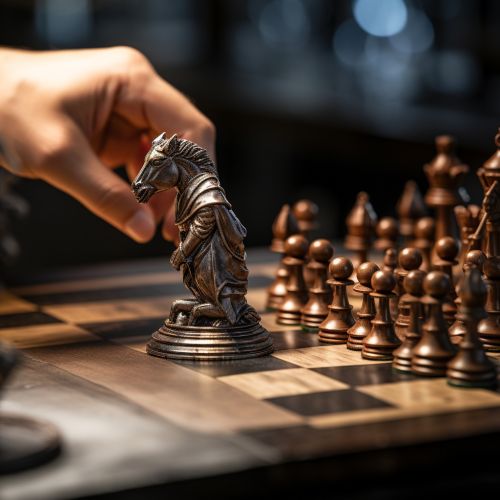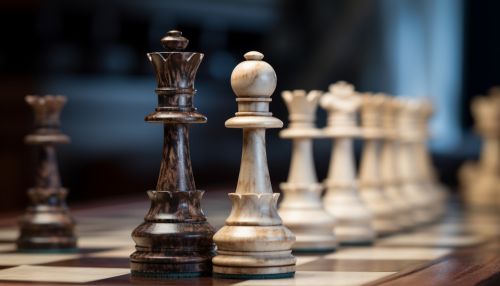The Mathematics of Game Theory
Introduction
Game theory is a branch of mathematics that studies situations where players choose different actions in an attempt to maximize their returns. First developed as a tool for understanding economic behavior and then by the RAND Corporation to define nuclear strategies, it has become an essential tool in the social sciences. Its applications range from international politics to evolutionary biology.


Fundamentals of Game Theory
Game theory is a study of strategic interaction among rational decision-makers. It has been used to study a wide variety of human and non-human behaviors. It drew attention first from economists who wished to understand why and how individuals and companies make particular decisions.
Game theory can be divided into two main branches. The first is cooperative or coalitional game theory, which analyzes what groups of players can jointly achieve. The second is non-cooperative game theory, which studies how players act independently.
Cooperative Game Theory
In cooperative games, binding agreements are possible. For example, the players can make enforceable threats and promises. An important modification is to allow for partial cooperation, where players within a coalition can make binding agreements, but the coalition is not enforced by an external authority.


Non-Cooperative Game Theory
Non-cooperative game theory deals primarily with games that have one or more Nash equilibria. A Nash equilibrium is a set of strategies, one for each player, such that no player has incentive to unilaterally change her action. Players are assumed to be rational and strategically sophisticated, and any change in strategies by any one player would lead that player to earn less than if she remained with her current strategy.


Applications of Game Theory
Game theory has been used to study a wide range of human behaviors, from politics to sports. Here are some of the most significant applications:
Economics
Game theory is a major method used in mathematical economics and business for modeling competing behaviors of interacting agents. Applications include a wide array of economic phenomena and approaches, such as auctions, bargaining, mergers & acquisitions pricing, fair division, duopolies, oligopolies, social network formation, agent-based computational economics, general equilibrium, mechanism design, and voting systems; and across such broad areas as experimental economics, behavioral economics, information economics, industrial organization, and political economy.


Political Science
The application of game theory to political science is focused in the overlapping areas of fair division, political economy, public choice, war bargaining, positive political theory, and social choice theory. In each of these areas, researchers have developed game-theoretic models in which the players are often voters, states, special interest groups, and politicians.


Biology
Game theory has been applied to a wide variety of situations in the natural world, including mate selection, fighting behavior, habitat selection, evolutionary game theory and genetics. Some species adjust their behaviors based on the behaviors of others in their population, effectively playing a 'game' with their fellow creatures.


Conclusion
Game theory has wide-ranging applications, and it continues to be an area of active research. Its insights have not only transformed economics, but also political science, biology, psychology, and even philosophy. The mathematical beauty of game theory and its wide array of practical applications make it an essential tool for understanding the world around us.
